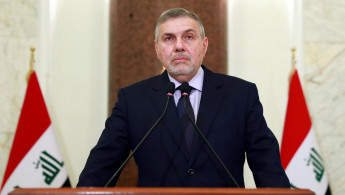Iraqi PM-designate meets anti-government activists in bid to end unrest
Iraqi Prime Minister designate Mohammad Allawi has met with dozens of representatives of the protest movement rocking Baghdad and southern Iraq since October, a participant in the meetings said on Wednesday.
The protesters are demanding an overhaul of the ruling elite and have rejected Allawi as a product of the political class they have been protesting against for months.
When he announced his appointment on 1 February, Allawi extended a hand to the protesters and urged them to keep up their demonstrations.
"Since the beginning of the week, Mohammad Allawi has held a string of meetings with several dozen representatives of protesters from the eight provinces taking part in the uprising," said Hisham al-Hashemi, an Iraqi security expert present at the meetings.
Comment: Protests bring Iraq's muhasasa system to its knees
According to Hashemi, Allawi pledged to release Iraqis detained for demonstrating, compensate the families of those killed in violence against protesters and work with the United Nations to implement the demonstrators' demands.
Security forces have killed over 500 protesters since October.
Allawi, 65, served as communications minister twice since the US-led invasion of 2003 but stepped down both times, citing corruption in the government.
Rooting out graft in Iraq - the 16th most corrupt country in the world according to Transparency International - has been a key demand of protesters.
Hashemi said Allawi promised the demonstrator delegations that he would take on embezzlement and the bloated public sector by changing up to 170 "acting" government officials and 450 directors-general in the ministries.
The PM-designate also said up to two ministers in his cabinet, which he has until 2 March to form, would be activists themselves and that demonstrators could have a say in up to five ministerial nominations.
It will be subject to a vote of confidence by parliament and if it passes, Allawi will formally take up his role as prime minister.
Until then, he is not able to implement executive decisions, including many of the reforms he is pledging.





 Follow the Middle East's top stories in English at The New Arab on Google News
Follow the Middle East's top stories in English at The New Arab on Google News
![The UAE is widely suspected of arming the RSF militia [Getty]](/sites/default/files/styles/image_330x185/public/2024-11/GettyImages-472529908.jpg?h=69f2b9d0&itok=Yauw3YTG)
![Netanyahu furiously denounced the ICC [Getty]](/sites/default/files/styles/image_330x185/public/2024-11/GettyImages-2169352575.jpg?h=199d8c1f&itok=-vRiruf5)
![Both Hamas and the Palestinian Authority welcomed the ICC arrest warrants [Getty]](/sites/default/files/styles/image_330x185/public/2024-11/GettyImages-2178351173.jpg?h=199d8c1f&itok=TV858iVg)